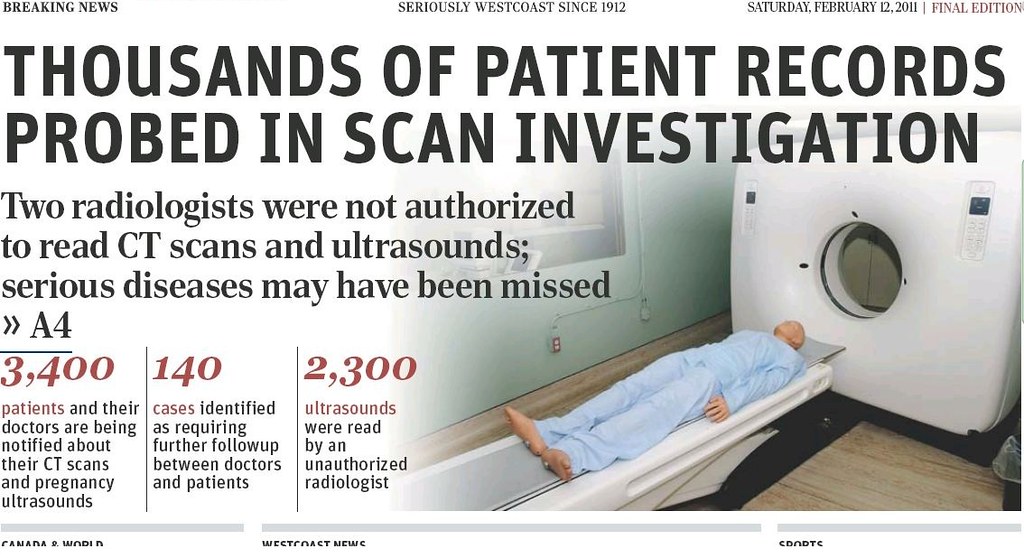Woman spends 36 hours in hallway after surgery
Stephanie Mercier
The Canadian Press
Mar 3, 2011
A Vancouver woman said she had to spend 36 hours in a busy hallway following major surgery at Royal Columbian Hospital in New Westminster, B.C.
Joanne, who spoke to CBC News on the condition that her surname not be used, also says that she wants to complain about her treatment, but the Fraser Health Authority hasn't returned her calls.
The hospital made national headlines earlier this week when the facility's emergency room became so overcrowded that ER staff had to take over a Tim Hortons restaurant in the hospital for the extra room to treat patients.
The middle-aged woman said she had pancreatic surgery Feb. 25 and had to begin her recovery behind privacy screens in a bed in a hospital hallway for a day and a half because no rooms were available.
"I was promised that I would get equal care to those that were in the other rooms but that was not so," she said.
Joanne said she was in excruciating pain, but there was no way to call a nurse.
"I had to use my cellphone to call the main desk at Royal Columbian Hospital to be transferred to the nursing station to get my nurse to come and find me," she said.
Joanne called her treatment "unacceptable."
"I was put in a very high traffic area behind some fabric dividers, and left basically. I was checked on every few hours."
Fraser Health's vice-president of clinical operations, Arden Krystal, said the hospital tries to avoid putting acute care patients in hallway beds, but admitted Thursday that staff sometimes have no other option.
"As we've become more space-challenged, when we do get surges of patients, it has become common practice to put patients in the hallway," Krystal said.
© Copyright (c) The Canadian Press
Stephanie Mercier
The Canadian Press
Mar 3, 2011
A Vancouver woman said she had to spend 36 hours in a busy hallway following major surgery at Royal Columbian Hospital in New Westminster, B.C.
Joanne, who spoke to CBC News on the condition that her surname not be used, also says that she wants to complain about her treatment, but the Fraser Health Authority hasn't returned her calls.
The hospital made national headlines earlier this week when the facility's emergency room became so overcrowded that ER staff had to take over a Tim Hortons restaurant in the hospital for the extra room to treat patients.
The middle-aged woman said she had pancreatic surgery Feb. 25 and had to begin her recovery behind privacy screens in a bed in a hospital hallway for a day and a half because no rooms were available.
"I was promised that I would get equal care to those that were in the other rooms but that was not so," she said.
Joanne said she was in excruciating pain, but there was no way to call a nurse.
"I had to use my cellphone to call the main desk at Royal Columbian Hospital to be transferred to the nursing station to get my nurse to come and find me," she said.
Joanne called her treatment "unacceptable."
"I was put in a very high traffic area behind some fabric dividers, and left basically. I was checked on every few hours."
Fraser Health's vice-president of clinical operations, Arden Krystal, said the hospital tries to avoid putting acute care patients in hallway beds, but admitted Thursday that staff sometimes have no other option.
"As we've become more space-challenged, when we do get surges of patients, it has become common practice to put patients in the hallway," Krystal said.
© Copyright (c) The Canadian Press

